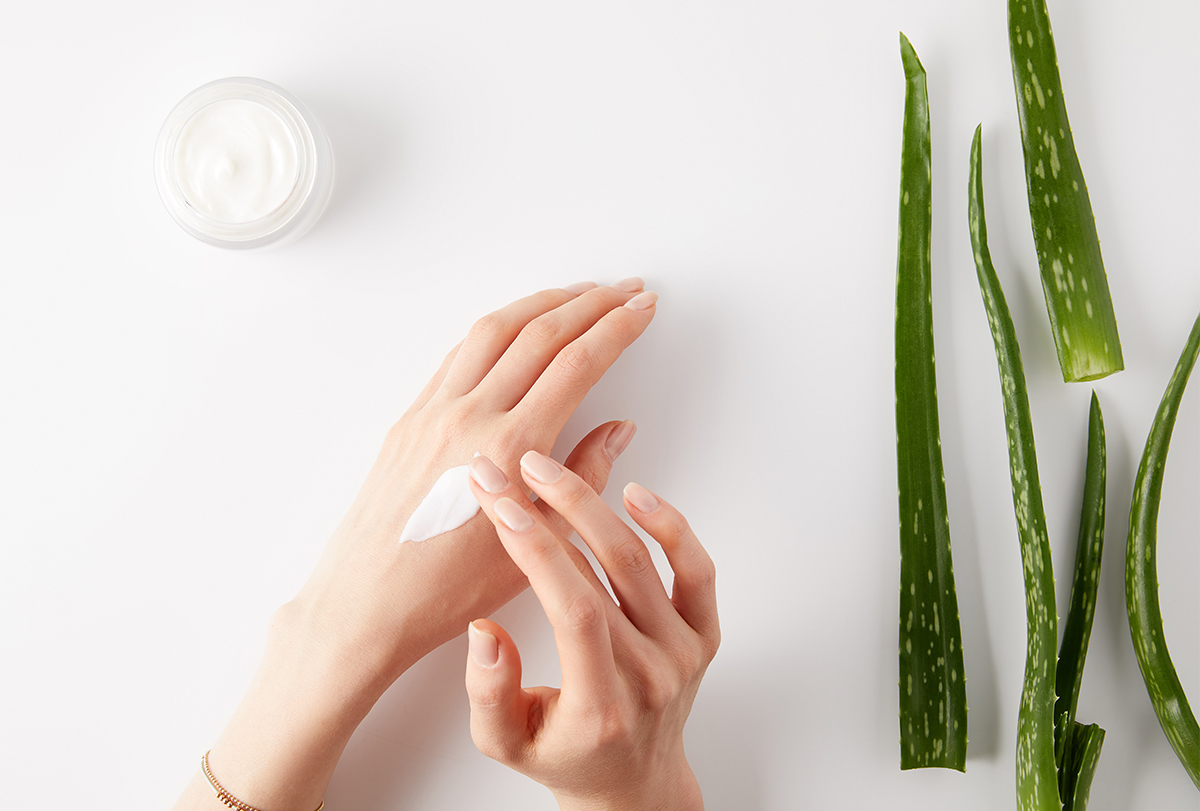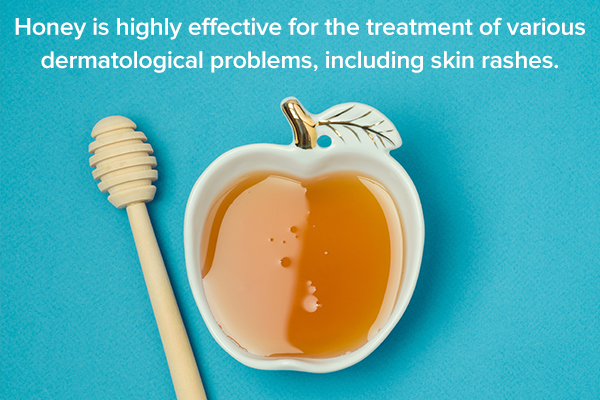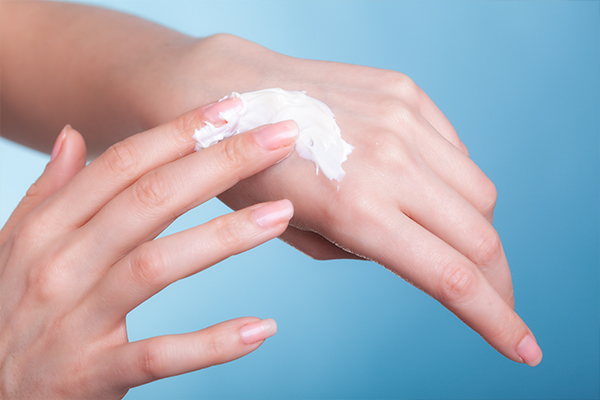In this article:
It is common for rashes to appear on your skin in areas such as the scalp, neck, face, back, and upper chest due to various reasons. Often, these rashes are accompanied by irritation, burning sensation, stinging, and tenderness.

Generally, rashes caused by allergies, medicines, heat, and bacteria are mild and may resolve on their own, but at-home treatments can help ease the associated symptoms and promote a quick recovery. For severe, spreading rash, it is best to consult a doctor.
Home Remedies for Skin Rashes
You can try the following home remedies to help treat mild skin rashes.
1. Take an oatmeal bath
Oats contain anti-inflammatory properties that can help treat a rash. They also help improve the scaling, roughness, dryness, and itchiness associated with a rash. (1)(2)
How to use:
Grind a cup of oatmeal and add it to your bathwater. Soak yourself in the bath for about 20 minutes daily until the rash clears. Alternatively, you can mix honey and ground oatmeal. Apply this paste to the rash for 15 minutes, and then wash it off.
2. Apply aloe vera gel

Aloe vera gel is highly useful in treating rashes caused by allergies or heat. It possesses antiallergenic (3) and moisturizing properties. Moreover, aloe vera gel can help reduce skin redness and help keep it cool. (4)(5)
How to use:
Extract fresh gel from an aloe vera leaf and apply it to the rash. Wash it off after 15 minutes. Alternatively, you can use creams or lotions that contain aloe vera.
Caution: Aloe vera application can increase the absorption of steroid creams.
3. Use oils
Several oils can help treat skin rashes, including:
- Virgin coconut oil: It possesses anti-inflammatory, analgesic, antipyretic, and antimicrobial activities that can help treat skin infections. Moreover, it acts as a moisturizer and emollient. (2)(6)
- Jojoba oil: This plant acts as an anti-inflammatory and wound-healing agent that can help improve skin rashes and infections. (7)
- Tea tree oil: It is especially effective against fungi-caused rashes. (8)(9)(10)
- Peppermint oil: It contains menthol that gives a cooling effect and is thus useful in treating heat rashes. Additionally, it helps relieve itching. (11)(12)(13)
- Calendula essential oil: Preliminary research shows that calendula can help in the treatment of hives and eczema. (14)
How to use:
You can apply coconut or jojoba oil or a combination of either oil and an essential oil directly to the rash.
Caution: These oils, in some people, may cause acne breakouts and allergy. (15)
4. Try honey

Honey is highly effective for the treatment of various dermatological problems, including skin rashes. It contains antimicrobial properties and active compounds that can help improve the symptoms of diaper rashes, dermatitis, and psoriasis. (16)(17)(18)
How to use:
Dab some organic or medical grade honey on the rash, and wash it after a few minutes. Gently dry the skin and apply a moisturizer.
5. Consider chamomile and green tea
Chamomile tea is an antioxidant and anti-inflammatory agent, effective in the improvement of mild skin problems such as rashes, sunburn, eczema, itching, and sores. (19)(20)
Similarly, green tea can help manage mild itch caused by rashes. (21)
How to use:
Brew green tea or chamomile tea and allow it to come to room temperature. Wash your rash using the cooled-down tea. Alternatively, you can apply tea bags to the rash or use chamomile essential oil mixed with a carrier oil.
6. Take an Epsom salt bath
Although not supported by substantial scientific evidence, Epsom salt baths are a popular anecdotal remedy (22) for skin rashes, especially those caused by allergies.
How to use:
Mix 1.5 cups of Epsom salt in a gallon of warm bath water, and soak in it for around 20 minutes.
7. Dab some apple cider vinegar
Similar to Epsom salt, apple cider vinegar (ACV) enjoys only anecdotal evidence for the treatment of mild skin rashes.
How to use:
Dilute ACV with water in a 1:3 ratio, and dab it on the skin rashes using a cotton ball.
8. Use OTCs

The following OTC medicines may help improve the symptoms associated with a skin rash:
- Zinc oxide ointment for irritated skin
- Calamine lotion for contact dermatitis
- Hydrocortisone cream (1%) for severe itching
- Oral antihistamines for discomfort and itching
Self-Care Measures to Manage Skin Rashes
Besides home remedies, the following self-care tips can help in the quick recovery of skin rashes and prevent worsening of symptoms:
- Wear light, breathable, and absorbent clothes that allow your skin to stay cool and dry.
- Use air conditioning and fans if the weather is hot to prevent overheating.
- Keep your skin dry. Wash skin that stays wet due to sweat or urine frequently and pat it dry.
- Pat your skin dry immediately after taking a bath as air-drying the skin may allow parasites to infect your skin.
- In case of contact with allergens, wash the affected area with water.
- Use fragrance-free moisturizers at least once a day or every time you wash your skin. Keeping your skin moisturized is key in improving itching and redness and promoting healing.
- Wash your clothes with allergen-free detergent.
- Drink plenty of water to keep your skin hydrated. This is especially applicable to children with hand, foot, and mouth disease.
- Change diapers timely and use baby wipes to clean the baby. For severe diaper rash, squirt some water to help clean the area.
- Apply a cold compress to reduce the itching.
- Keep your nails short as scratching with nails can damage the skin.
- Use hypoallergenic makeup and bedding.
Preventive Measures
The following measures can help avoid getting rashes:
- Avoid contact with allergens.
- Wear sunscreens with SPF 30 or higher to prevent sunburns.
- Avoid the use of harsh soaps, especially if you have an eczema flare-up.
Most-Asked Questions About Skin Rashes

Can olive oil be used to treat a rash?
A study on radiodermatitis supported the use of olive oil for treating skin dryness and erythema, (23) but a few other studies contraindicate its use.
It is found that the low linoleum acid content of olive oil makes it a poor moisturizer. (2)(24) Olive oil may also worsen dermatitis. (25) Therefore, it is best to avoid the use of olive oil for skin rashes as it can aggravate the rash. Instead, try other remedies that have been proven effective.
Can witch hazel help treat rashes?
Witch hazel, a popular dermatological agent, is primarily used for treating skin wounds. However, no research supports its use for treating skin rashes. In fact, the application of witch hazel may worsen the rash.
Is neem or neem oil effective in treating rashes?
Neem contains antimicrobial properties that can be useful in the treatment of skin conditions such as eczema and acne. However, neem oil is fairly strong and can have different side effects.
Moreover, the research conducted on the effect of neem extracts for skin problems is only animal based. Therefore, it is best to avoid the use of neem for skin rashes until proven in human-based studies.
Final Word
While skin rashes are a common appearance, they often clear up on their own, especially those caused by allergies. You may use home remedies such as the application of oils or aloe vera gel and follow some self-care measures to help treat skin rashes and alleviate the associated symptoms.
If the rash doesn’t clear or is caused by an infection or if you are not sure of its causative agent, it is best to consult a doctor for the proper treatment and future prevention.

- Was this article helpful?
- YES, THANKS!NOT REALLY


